AAP Government's Landmark Decision: SGPC Act Amendment to Ensure Free Access to Gurbani from Golden Temple Amritsar
Supreme Court's recent verdict in the SGPC-Haryana case had cleared the legal hurdles for the State Vidhan Sabha to amend the SGPC Act, 1925, hitherto generally amended only by the Parliament.
Punjab CM’s surprise announcement: On 18th June, the Punjab Chief Minister, Sardar Bhagwant Mann, tweeted in Punjabi.
https://twitter.com/BhagwantMann/status/1670406553386745856?s=20
“With Waheguru Ji's blessings, tomorrow we are going to take a historic decision based on the demand of the entire “Sangat” (congregation). We are going to add a new new provision in the Sikh Gurdwaras Act, 1925, stating that the propagation of Gurbani from Harmandir Sahib (Golden Temple) will be free for everyone, without the need for a tender. Tomorrow, we will approve it in the Cabinet and on 20th June, the resolution will be presented in the Vidhan Sabha.” (translation by Twitter, with minor edits by the author)
Courageous or Controversial Decision? While the manner in which the exclusive telecast rights of the holy Gurbani from Sri Darbar Sahib, Amritsar had been granted to a particular TV channel by the SGPC, without competitive bidding, had previously invited criticism from some quarters, the CM’s surprise announcement over Twitter was quite unexpected. Even a most disputatious contender cannot, in principle, find fault, with the proposition that the telecast of LIVE Gurbani from the holiest of the Sikh Shrines should be free for everyone, yet the decision elicited a sharp reaction from the Shiromani Akali Dal (SAD) on the expected lines, dubbing it a direct interference in the internal religious affairs of the Sikhs.
Response of Shiromani Akali Dal: SAD President, Sukhbir Singh Badal immediately tweeted his response, also in Punjabi:
https://twitter.com/officeofssbadal/status/1670453929820446723?s=20
“The declaration made by the Chief Minister of Kejriwal’s "AAP" Government regarding holy Sikh Gurbani is a direct official attack on the Khalsa Panth (Sikh community) and the management of Sikh Gurdwaras/ shrines..……. contd.”
The longish tweet ends as: “The Khalsa Panth accepts the challenge of this arrogant step………...
The Congress Party in Punjab will also soon be required to crystallize its official stand on the matter. Till the publication of this article, no major Congress leader, holding an official party position, had come out publicly with their comments in this matter. It would not be an easy task for them. However, Navjot Singh Sidhu did tweet in favour of the decision, ending with “Kudos!!”
https://twitter.com/sherryontopp/status/1670461957663752192?s=20
Supreme Court’s verdict in Haryana-SGPC case paved the way: On 25th May, 2023, I had published an article, essentially from a legal perspective, captioned “Did the Supreme Court err in the SGPC-Haryana Case?”. In this, I had opined that the Supreme Court’s decision to uphold the Haryana’s decision to carve out their own Committee to manage the Gurdwaras in Haryana, had created a new worrisome precedent opening way for the Punjab Vidhan Sabha to amend the Sikh Gurdwaras Act, 1925, noting that the SGPC Act had hitherto only been amended by the Parliament.
While the serious reader may follow the link at the end of this article to read the complete piece, I do take this the opportunity to paraphrse some extracts from the same.
Worrisome Precedent: Apart from these legalistic arguments, the judgement of the Supreme Court sets a controversial precedent, and gives a “supreme” judicial sanction to, some potentially very “bold” legislative action that the States of Punjab, Haryana and Himachal Pradesh could take, disturbing not only the delicate inter-state balance betwixt these partner states, but also vis-à-vis the Sikhs, as a minority community, with regard to their relationship with the Union of India.
For example, hypothetically speaking:
c) Punjab Legislature could potentially tinker with the definition of “Sikhs” as contained in the SGPC Act, 1925.
d) Punjab Legislature could potentially, restore the voting rights of “Sahjdhari Sikhs” by amending the SGPC Act, 1925.
e) Punjab Legislature could potentially prescribe the terms and conditions regarding the appointment and removal of “Jathedar Akal Takht”.
f) In the extreme case, the Punjab Legislature could introduce provisions for an “Administrator” appointed by it take over the powers and functions of the Executive Committee of the SGPC, once the term of the General House of the SGPC expires, till the fresh elections were held.
Latest decision of the AAP Government: The latest proposed decision of the Punjab Government regarding the broadcast/ telecast of Gurbani from Darbar Sahib free for everyone makes it appear that the possibility envisaged in my previous article has turned out to be quite prescient. While the AAP Government with an overwhelming majority in the Punjab Vidhan Sabha will not find it difficult to get the proposed Amendment Bill passed, there may be still some serious obstacles to tackle before it becomes law. The role of the Governor shall be crucial in this regard.
Role of the Governor: The Governor of Punjab may, under Article 200 of the Constitution of India once a Bill is passed by the State Vidhan Sabha and sent to him, duly recommended:
Assent to the Bill: The Governor can give his assent to the Bill, which will make it a law. (Article 200(1))
Withhold assent to the Bill: The Governor can withhold his assent to the Bill, which will prevent it from becoming a law. (Article 200(2))
Reserve the Bill for the consideration of the President: The Governor can reserve the Bill for the consideration of the President, who will then decide whether to give his assent to the Bill or not. (Article 200(3))
Return the Bill to the State Legislature for reconsideration: The Governor can return the Bill to the State Legislature for reconsideration, with or without suggesting amendments. If the Bill is passed again by the State Legislature with or without the amendments suggested by the Governor, the Governor will be bound to give his assent to the Bill. (Article 200(4))
The AAP perspective: In the event, the Bill fails to become law, owing to the decision, or lack thereof, of the Governor of Punjab, the Aam Aadmi Party (AAP) in Punjab will find a legitimate plank to claim that the SAD and BJP are hand-in-glove with each other, their so-called “divorce” notwithstanding. It would, in all probability, launch a media blitz to project that the narrow and converging political interests of the SAD and BJP have compelled them to collude with each other, with a view to scuttle a legitimate decision of the AAP Government to make the broadcast of Gurbani from Darbar Sahib free for everyone. The Aam Aadmi Party could garner more political capital, even if the Bill does now become law, or even if it does become an Act but does not get implemented, or one reason or another,
Shiromani Akali Dal (SAD) has barely three MLAs in the House of 117 and is thus in no position to stall the passage of the Bill. Of course, the SAD or the SGPC can take the matter to the Court but once a law is enacted and notified, the constitutional Courts, including the Supreme Court of India, would be exceedingly reluctant to stay its operation as an interim measure. No doubt, any unconstitutional law can be struck down, but this takes its own time and in the meanwhile the decision, having the force of law, would have to be given effect to.
SAD will be, in our humble opinion, compelled to launch an agitation against this decision, portraying the AAP Government’s decision as a direct, blatant and illegal interference in the internal, religious affairs of the Sikhs. How much traction such an agitation, if launched gathers, remains only in the realm of speculation but if it fails to take off or fizzles out, it shall be a major blow to the SAD which claims to be the sole representative of the interests of the Sikhs in general and particularly in Punjab.
In the previous article, I had written:
“Parliament is the proper forum: While such an eventuality (that is Punjab Vidhan Sabha amending the SGPC Act, 1925; phrase within brackets now added for sake of clarity) is neither imminent nor politically feasible, the idea in “provocatively” enumerating such hypothetical possibilities, howsoever remote, was merely to drive home the point that it would be best to leave the amendments in the SGPC Act, 1925 to the supreme and sovereign wisdom of the Parliament, that should ordinarily be exercised only after reaching a consensus with the Sikh leadership, including but not limited to the SGPC.”
Way forward through consensus: It appears that my assessment was quite wrong—one proposal for amending the SGPCAct by the Punjab Vidhan Sabha has come much sooner than I could ever have anticipated. However, the way forward remains the same—through consultation and consensus, rather than through confrontation. The Central Government cannot afford to have a hands-off approach in a matter that could easily stoke passions of the Sikh community, if not handled with tact and empathy.
Let’s avoid disturbance of public order: Punjab has previously suffered from decades of strife and bloodshed. Often seemingly trivial causes have lead to escalation of tension and deterioration of the situation. While the state may have seemingly recovered from recovered from such disturbed conditions, it is still bedevilled with serious problems like stagnant agriculture, inflation, unemployment, outward exodus of educated youth, lack of fresh industrial investment, lacklustre performance in health and education parameters, not to mention audacious daylight murders and robberies that are beginning to take place with alarming regularity.
Let’s resolve the issue amicably: With a hostile neighbour that is ever willing to add fuel to the fire, all major political parties must work together in a spirit of cooperation to tackle those serious socio-economic issues. No one can legitimately dispute that the broadcast/ telecast of Gurbani from Darbar Sahib should be free for everyone or can ethically advocate that one particular private channel should have monopoly over it. The question is not whether but how to break this monopoly. It is not the time to play politics but for all the concerned leaders to exhibit statesmanship, so that this seemingly trivial issue does not snowball into something more serious. Punjab does not deserve it—let’s hope better sense prevails and the matter is amicably resolved. Profit motive of one private TV channel cannot to allowed to hold the entire State at ransom.
_____________________________________________________
KBS Sidhu. The author is an IAS officer of 1984 Batch of Punjab cadre, and retired from service in July 2021, as Special Chief Secretary, Punjab.
The photos (except the new Parliament) have been clicked by the author.
He can be reached on kbs.sidhu@gmail.com
Did the Supreme Court err in the SGPC-Haryana Case?
Supreme Court’s Verdict: The verdict of 20th September, 2022 pronounced by the Supreme Court of India[1], upholding the constitutional validity of the Haryana Sikh Gurdwaras (Management) Act, 2014[2], in our opinion, is not only erroneous and unconstitutionally incorrect but also significantly undermines the unpa…

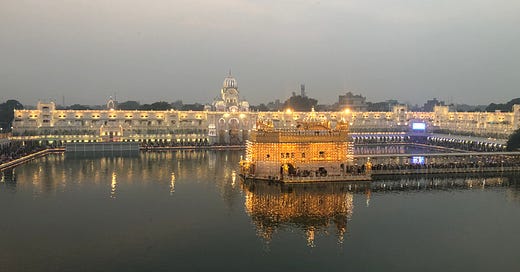



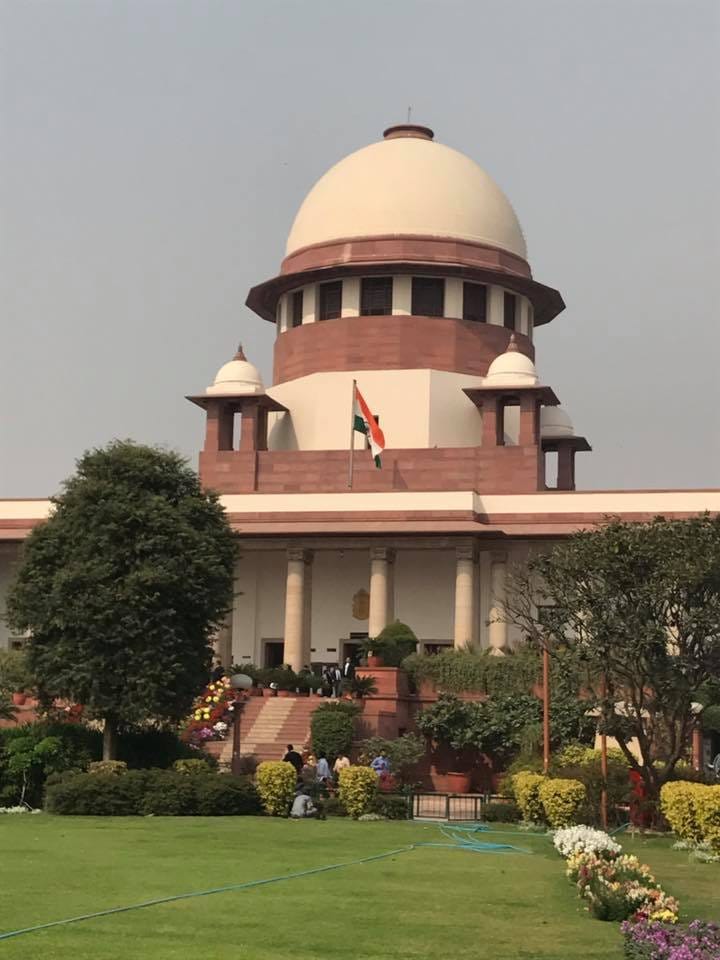
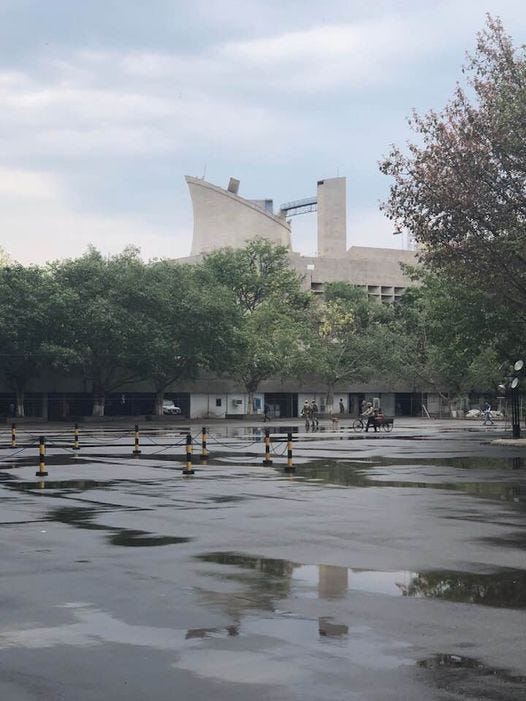
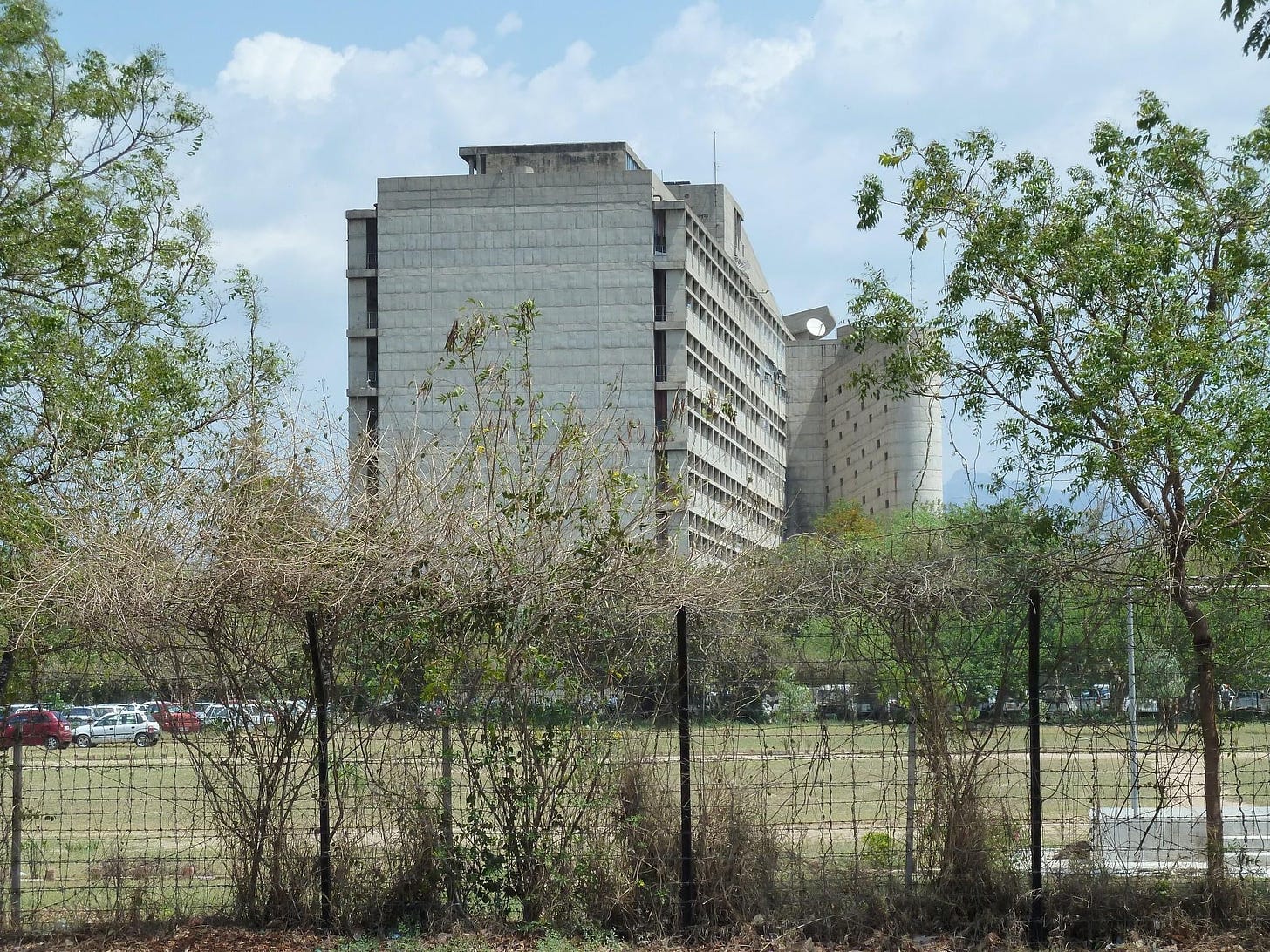
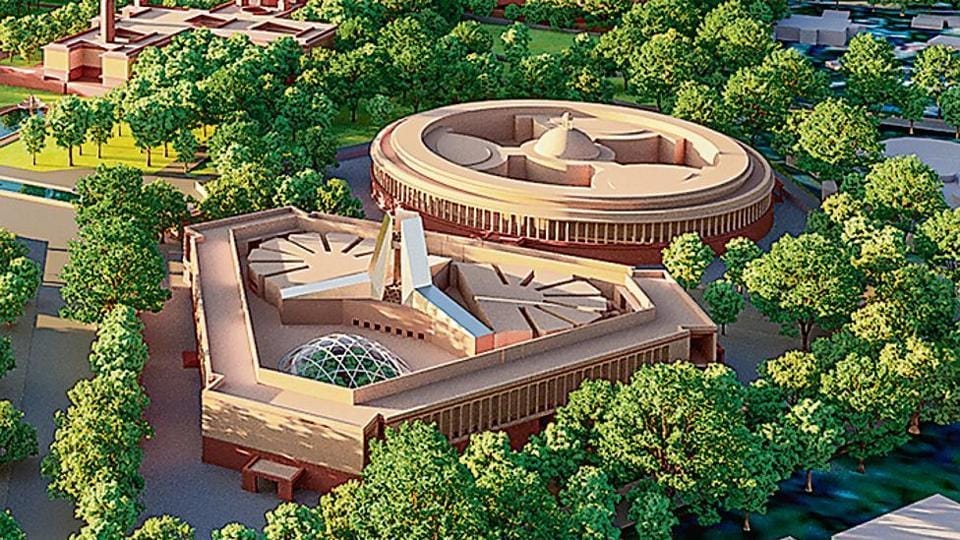
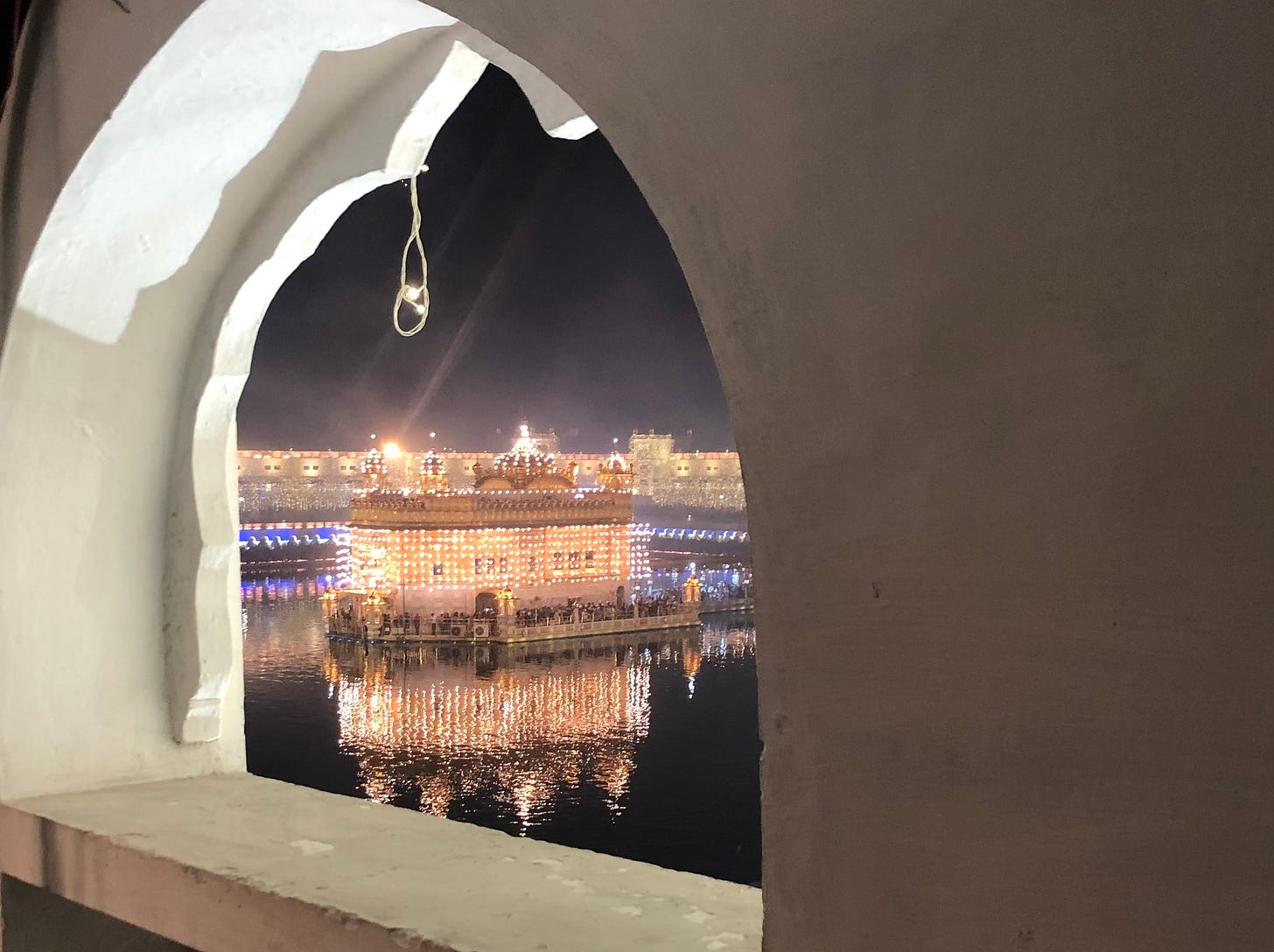
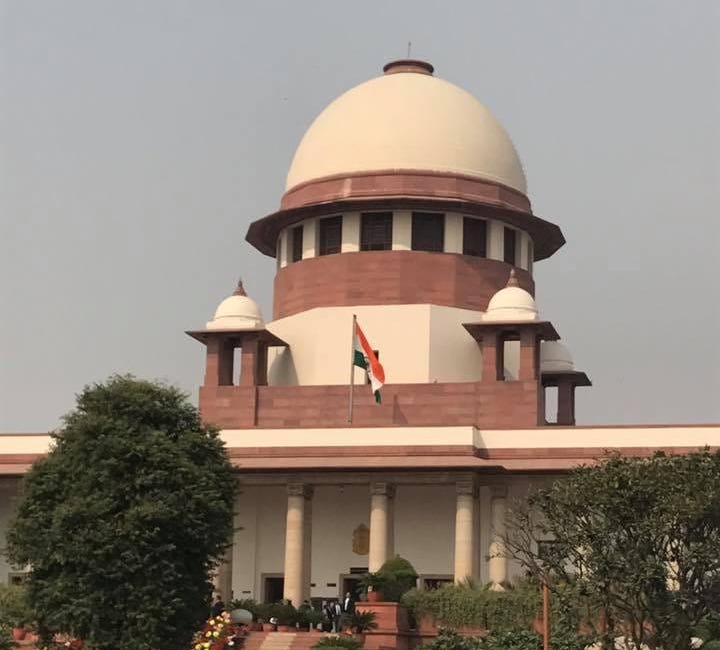
After every crisis there comes its natural solution acceptable to general masses that is called revolution. Let's see the results.
It is a great decision by AAP , to relay Gurbani free from Darbar Sahib & other religious places . Request to other political parties don’t create conflicts . It is for the benefits for all . Get together to have peaceful atmosphere in Punjab . 🙏🙏